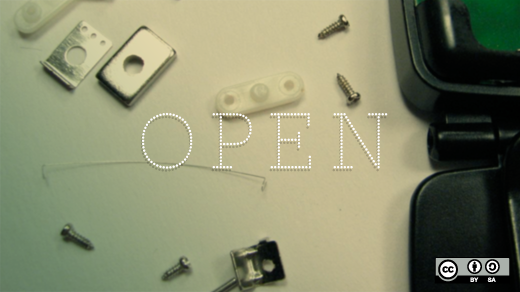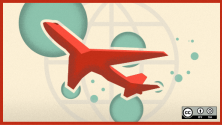C.H.I.P., a $9 mini computer (with full Linux capability and WiFi connectivity), was met with a great response when it launched on Kickstarter earlier this year, more than quadrupling its original fundraising goal of $50,000.
At LinuxCon Europe, longtime Linux developer Hans de Goede plans to review it. I caught up with him to talk about his upcoming presentation and other things open source.

You've been a Linux developer since 1996. How did you get started in your Linux journey?
A friend introduced me to Linux in 1996. Back then, I was teaching myself to program in C. I was using DJGPP under DOS and soon also plain GCC under Linux. I quickly learned that debugging under Linux was much better than under DOS, so I switched to Linux and never looked back. One thing I missed under Linux was games, so I started working on porting various games to Linux.
It has been a great journey—I really like the cooperative nature of the FOSS community, building something bigger than oneself together.
What are the Linux distributions you have worked with? Any favorites?
I started with Red Hat 4.0, when I started using Linux. I've given Debian and Mandrake a quick try—and even Solaris X86—but I've pretty much been a Red Hat guy all the way.
You recently joined the graphics team at Red Hat. What are you working on?
For the last year or so I've been working on libinput, the new unified userspace input handling library for Xorg and Wayland. I've mostly been working on the touchpad and touchpad gestures support. Now I'm shifting my focus to Nouveau, which is a completely new area for me. So for now, I'm mostly busy learning the ins and outs of GPUs, Mesa, and the DRM kernel subsystem.
Your LinuxCon Europe talk is based on C.H.I.P. Without giving away much, can you give us an idea of what to expect?
The talk has two parts. The first half will be about what the C.H.I.P. can do and demoing the C.H.I.P. The second half will look at the software for the C.H.I.P., specifically where we are with mainline U-Boot and mainline kernel support for the C.H.I.P., something that is always a challenge with ARM-based boards.
The key takeaway for the attendees here will be an idea what the CHIP can do, and knowledge about the current state of support for the C.H.I.P. in upstream u-boot and the upstream kernel, including a list of what is missing and what the plans are for addressing the missing bits.
What is your advice to open source enthusiasts who want to start contributing to an open source project? Which projects are especially friendly to newcomers?
First and foremost, make sure you are having fun. Find an itch to scratch—something that bothers you about FOSS software you use and where fixing it lies within your skill set. I believe it is important to start with small tasks and actually finish them so that you get a sense of fulfillment, rather than biting off something too big to chew.
All of them and none of them. Let me explain: All projects welcome new contributors, but all projects also expect a certain amount of perseverance from new contributors. Software engineering is not an easy profession/hobby. You will have some bad days, and you will have to pick up where you left off the previous day and just try again.
The best way to start is by just doing something. Anything, really. First submit some patches in the form of documentation fixes and get to know people in the project that way before asking for help on more complex issues.
Editor's note: If you're interested in contributing to an open source project and don't know where to get started, visit the OpenHatch community.
Series
This article is part of the LinuxCon Europe Series for LinuxCon in Dublin. LinuxCon Europe is where where developers, sys admins, architects and all levels of technical talent gather together under one roof for education, collaboration and problem-solving to further the Linux platform. LinuxCon Europe will be held October 5-7, 2015, in Dublin, Ireland.






1 Comment